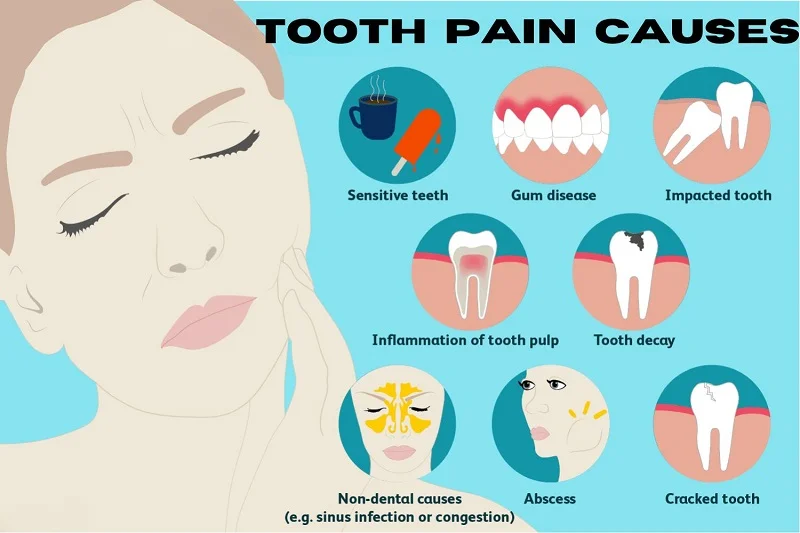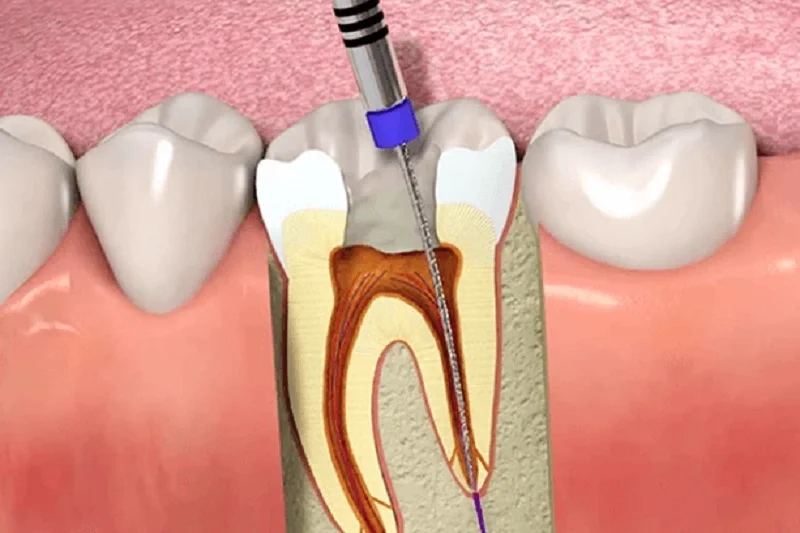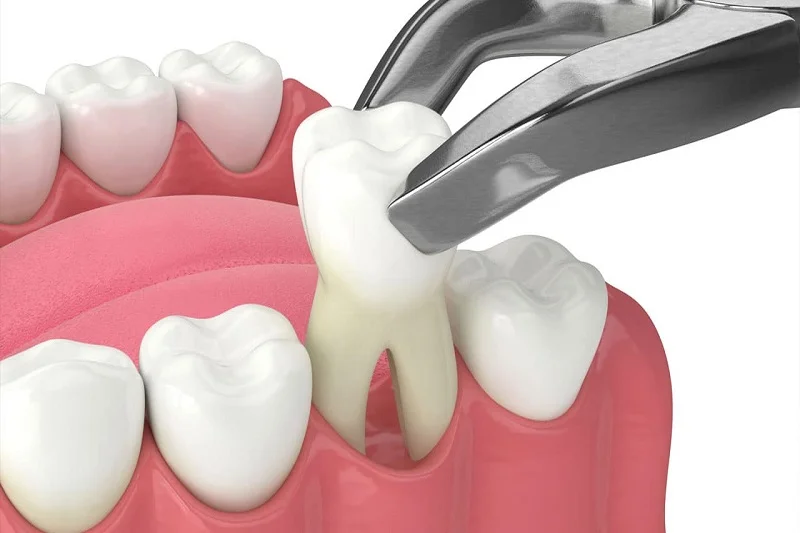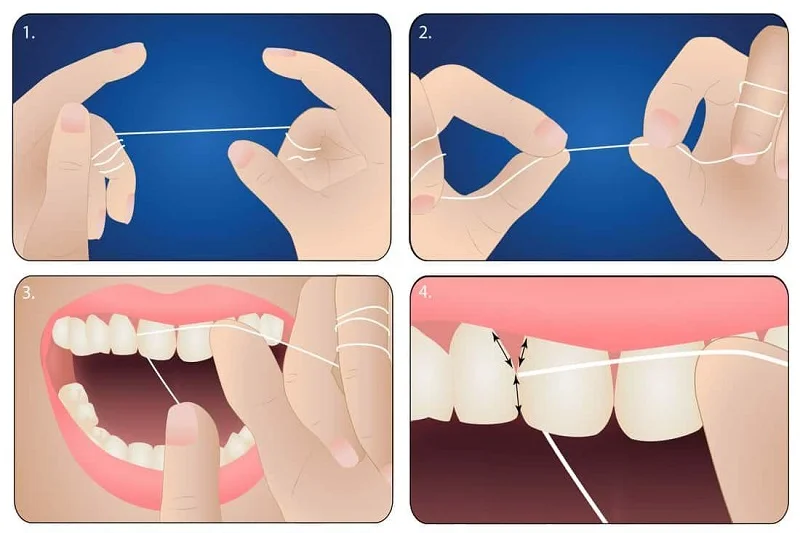Sorry, nothing in cart.
Kill Tooth Pain Nerve in 3 Seconds Permanently | Is It Possible?
- By admin
- |
- General Blog
- |
People want to know how to instantly kill tooth pain nerve in 3 seconds Permanently? And is immediate relief from toothache possible? Know all about tooth pain types, causes, treatment, and home remedies in this article.
Tooth pain, like other types of pain, is performed on the same basis. It is a sort of reactive nerve pain that develops inside the teeth in reaction to specific stimuli. Tooth discomfort is a frequent issue that affects people of all ages and can be caused by a number of different conditions.
Tooth pain, whether severe or mild, may indicate serious dental problems. 45% of those said their most recent toothache was the worst pain they’d ever had, despite having a variety of dental ailments.
What is a Tooth Pain?
Tooth pain, often known as dental pain, is defined as any discomfort, soreness, or discomfort felt in or around a tooth. It can be caused by a variety of factors, including dental decay, gum disease, tooth abscess, or tooth damage. Tooth pain can range in severity from mild to severe, and it can be continual or sporadic. Other indications of tooth discomfort include swelling, sensitivity to hot or cold meals or drinks, and trouble eating. It is critical to discover the underlying cause of tooth pain in order to properly treat it, eliminate tooth pain, and avoid subsequent dental problems.
What Are the Types Of Tooth Pain?

1. Sharp Pain
If you experience a sharp pain when eating, it could be a sign of an untreated cavity. Bacteria and plaque are liable for eroding the enamel on your teeth, resulting in tooth decay and, in turn, a much more serious infection later on. It is critical to treat the cavity as soon as possible to avoid further damage.
2. Sensitivity
Sensitivity can cause a sudden sensation of tooth pain while eating cold or hot foods. It can be caused due to a range of reasons such as teeth grinding, exposed tooth roots, or cavities.
3. Throbbing pain
Constant throbbing pain that develops over time is usually interpreted as an indication of an infection deep within your tooth. When you have tooth discomfort, it might be difficult to concentrate on anything else. A root canal treatment is required to cure the infection and prevent it from spreading. It must also be treated as soon as possible.
4. Pain when biting
Pain that occurs exclusively when biting or chewing could be caused by a number of problems, including an abscess or a fracture. Depending on the severity of the injury, a dental crown may be prescribed to treat the damage. It is critical to treat the crack as soon as possible to prevent the tooth from breaking further or producing an infection.
5. Pain at the back of the mouth
TMJ issue can cause pain in the back of your mouth, which typically leads to significant tooth ache. On either side of your face, the temporomandibular joint links your jaw to your skull. It might produce mouth pain if it is irritated or not working properly. To ease tooth discomfort, seek suitable dental therapy for TMJ problem.
Tooth Pain Causes

When you have tooth pain, it is usually caused by inflammation or infection in the pulp or nerve of the tooth. This can result in throbbing or intense discomfort that is difficult to control. While pain relievers and numbing gels can provide temporary comfort, they do not treat the source of the problem.
Tooth pain may be caused by a variety of factors, including:
- Cavities
- Gum disease
- Tooth decay
- Injury to the tooth
What Does Nerve Tooth Pain Feel Like?
Tooth pain can be excruciating, and it is often caused by a damaged nerve in the tooth. The pain is usually strong and extends from the affected area. It may cause throbbing feelings that last for hours or days without relief.
Many people report the following feelings:
- When a nerve is exposed or injured, it causes quick, acute pain.
- Tingling and painful feelings that are difficult to ignore
- Sensitivity to cold and hot temperatures in the afflicted nerve’s area
- Unbearable discomfort that can disrupt regular activities
- All of these symptoms might combine to make tooth pain a terrifying experience. As a result, it is critical to get therapy as soon as feasible.
Is There A Way To Kill Tooth Pain Nerve in 3 Seconds Permanently?
There are two effective methods for getting immediate relief from dental pain:
1) Extraction of the nerve from the tooth
2) Extraction of the tooth altogether
Both of these methods eliminate the nerve that causes tooth discomfort, providing rapid relief.

A root canal is a procedure that requires removing the nerve from the tooth and can only be performed by a dentist. The alleviation is immediate after the nerve is severed.

Tooth extraction involves removing the tooth completely, which is usually done under local anesthetic. Although this treatment leaves a space in the mouth where the tooth was, it gives a long-term remedy to dental pain.
All other treatments just provide short-term comfort since they do not address the underlying cause of the pain, which is a damaged nerve. To provide long-term relief, the nerve must be treated directly rather than just the symptoms.
How to Kill Tooth Pain Nerve in 3 Seconds Permanently?
Finding the right toothache therapy is dependent on the underlying problem. The length of time it takes to get rid of pain varies depending on the severity of the toothache and the type of the underlying cause.
While it may not always be able to relieve tooth pain in three seconds, these 10 solutions are certain to help:
10 Ways to Kill Tooth Pain Nerve in 3 Seconds Permanently?
1. Saltwater rinse
The first line of treatment for any toothache is to rinse your mouth with salt water. It is a great cleanser, removing any food particles and dirt from your teeth and gums first. It is also a powerful disinfectant and aids in the reduction of gum inflammation.
Take a glass of warm water and add a teaspoon of salt to it for this. Gargle and rinse well after thoroughly mixing the salt with the water.
Repeating this a few times will remove any gum inflammation, and any toothache caused by such factors will be relieved immediately.
2. Clove oil
Clove oil is a powerful home cure for a variety of illnesses and ailments, including toothache. It has been utilized as a component in various traditional remedies all over the world.
This is mostly due to the presence of eugenol, an active element in clove oil that works as an anesthetic. This helps numb the location of pain and prevents neurons from communicating pain back to the brain.
Clove oil, administered directly to the affected gums with a cotton swab, can provide practically immediate pain relief. It should be remembered, however, that it only relieves pain and does not address the underlying cause.
As a result, while clove oil can provide immediate pain relief, other treatments may be required to address the underlying problem.
3. Peppermint tea
Peppermint tea is a herbal mixture that is commonly consumed in homes as an alternative to traditional tea. It is widely available and provides numerous benefits to individuals who take in it. It also has the ability to alleviate toothache.
Peppermint tea contains powerful antibacterial characteristics that can assist you in solving the reason causing toothache. It directly combats any bacteria that are producing the toothache.
You can make some peppermint tea and swish it around in your mouth once it’s warm enough. Another method is to apply the used peppermint tea bags directly to the area of the gums that is causing pain.
4. Garlic
Garlic is a seasoning vegetable that has been used for centuries as a flavoring agent as well as an ingredient in many traditional remedies around the world. It is nearly globally available and used in nearly every cuisine.
When garlic is crushed, sliced, or chopped for use, it naturally produces allicin, a chemical with powerful antibacterial and antimicrobial effects. This can provide toothache relief by efficiently eradicating the germs that causes the pain.
To use garlic for toothache, make sure it is freshly chopped to ensure that it contains allicin. You can either eat freshly sliced garlic in the painful area of your mouth or make a thin paste of garlic and apply it to your gums while it is still fresh.
5. Hydrogen peroxide
Hydrogen peroxide is a chemical component that is utilized in a variety of medicinal, dental, and cosmetic goods due to its antibacterial and bleaching properties. It is even used to disinfect and sanitize surfaces to eliminate bacteria.
Because of its antibacterial characteristics, hydrogen peroxide can be used to relieve dental discomfort. The antiseptic nature can help cure the underlying causes of tooth discomfort caused by inflammation or wounds in the gums.
To make antiseptic mouth floss, dilute a tiny amount of hydrogen peroxide with water. Flossing with this solution will help you treat any type of gum inflammation. This is especially beneficial in the treatment of toothache induced by disorders such as gingivitis.
6. Vanilla extract
Vanilla extract is a popular flavoring agent that is found in many kitchens all around the world. It is a simple household part with antioxidant and anesthetic qualities.
The alcohol in vanilla extract serves as an anesthetic, numbing gum discomfort, while the natural presence of antioxidants aids in the healing of minor irritations and wounds.
By numbing the nerves in the area and mending any active sores, dabbing vanilla essence on the affected area with cotton swabs will help relieve tooth pain. However, don’t leave it on for too long because it may irritate your gums.
7. Cold/Warm compress
Cold and warm compresses are great for numbing any part of the body. Dabbing with a compress helps to freeze blood flow in a specific spot, numbing the nerves in the area. This aids in the reduction of pain in the area.
Using a compress to relieve pain can have similar results for toothache. Applying a warm or cold compress to the cheeks or gums can assist to stop the blood flow, reducing pain and speeding up the healing process.
8. Anti-inflammatory medication
Anti-inflammatory medications including Celecoxib are used to treat inflammation in multiple parts of the body. They are available in a variety of forms, including capsules, tablets, syrups, and topical ointments.
The underlying cause of toothache in several situations is gum irritation. The underlying causes can be treated with anti-inflammatory medicine, which helps relieve discomfort.
Certain capsules can be taken orally to treat toothache because they are designed to lessen inflammation throughout the body.
Because topical ointments are not edible, they should not be used in the mouth. However, if a topical ointment is intended for use in the mouth, it can be used to relieve toothache by applying it to the gums.
Because Pain relief medications can interfere with other medications you are taking, it is best to see a healthcare expert before using one for toothache.
9. Swishing alcohol
Alcohol is a natural anesthetic capable of relaxing nerve cells in any area of administration. It is frequently used in medical operations to clean and numb various parts of the body.
You can use any alcohol created for human use to relieve toothache. Choosing cleaner alcohols such as vodka, tequila, and gin facilitates the process. Swish a small bit of the alcohol around in your mouth.
It kills bacteria and microorganisms in the mouth while also calming the cells to lessen pain nearly quickly.
10. Apple cider vinegar
Apple cider vinegar is a beneficial natural substance that has numerous health advantages. Along from being acidic, it also shows essential anti-inflammatory effects.
Apple cider vinegar can be diluted with water to make perfect floss that targets inflammation while also killing germs.
Dental Floss Method to Kill Tooth Pain Nerve in 3 Seconds Permanently

Dental floss is a method that treats primary teeth rather than adult teeth. If you recall from your youth, your baby teeth had to be quite loose in order for you to floss them out. Also, please avoid using pliers on your teeth. Since the dawn of time, parents and children have used floss to remove lost milk teeth.
- Apply some anbesol around the painful tooth.
- Wrap the floss around the tooth.
- Quickly pull the floss in less than a second.
- You should now have the tooth in your hands.
Instead, we recommend that you call your dentist as soon as possible so that they can perform the operation for you in a painless manner. Our LIC dentists are highly skilled at tooth extraction and would be delighted to assist you.
If you are still unable to schedule an appointment with a dentist, there are several natural home remedies that can temporarily reduce the nerve discomfort caused by the tooth.
What are Home remedies to kill tooth pain nerve immediately?
All of the procedures listed below will provide temporary relief from tooth nerve pain. It will not kill it permanently, but it will provide temporary relief. If the natural therapies do not work, an over-the-counter pain reliever might be used instead.
8 Home Remedies to Kill Tooth Pain Nerve Immediately:
- Cold compress
- Saltwater rinsing
- Listerine rinsing
- Hydrogen peroxide rinsing
- Oregano oil
- Peppermint tea bag
- Garlic
- Thyme oil and Clove oil
Does Muscle Relaxers Medicine Use for Tooth Nerve Pain Treatment?
Carisoprodol and other muscle relaxers are medications that are regularly used to help patients find relief from muscular spasms and other types of discomfort. They primarily help people with chronic pain issues such as Osteoarthritis and fibromyalgia.
They also provide extra advantages. Muscle relaxants like Pain o Soma can aid with dental nerve pain reduction in some circumstances. Muscle relaxants work by blocking pain signals from being sent to the brain.
As a result, they can help to alleviate dental nerve discomfort. Furthermore, muscle relaxants may be effective in reducing inflammation in the area, thereby offering some pain relief.
Muscle relaxants, on the other hand, are not a cure for dental nerve pain and should be taken with caution. They may cause risky adverse effects such as sleepiness and dizziness if taken wrongly or in excessive dosages. Furthermore, some muscle relaxers may conflict with other medications you are taking, so ask your doctor before using them.
Conclusion:
Many people experience tooth or nerve pain for a variety of reasons; therefore, evaluating the symptoms at home and treating the underlying causes is critical. Tooth decay and infections are two of these factors. When dealing with tooth pain, the simple techniques of treating kill tooth pain nerve in 3 seconds permanently can be tooth extraction and crowning of the dental canal.
Remember that pain can represent other problems, such as teeth clenching. In such instances, nightguards can provide immediate help. Furthermore, you can investigate various strategies for Kill Tooth Pain Nerve in 3 Seconds Permanently.
Frequently Asked Questions
What Methods Kill Tooth Pain Nerve in 3 Seconds Permanently?
Cold compresses, hot packs, over-the-counter (OTC) nonsteroidal anti-inflammatories (NSAIDs), pain-relieving oral gel, salt water rinse, garlic, peppermint tea bags, clove oil, homemade thyme mouthwash, and acupuncture are all effective toothache cures may use to Kill Tooth Pain Nerve in 3 Seconds Permanently.
What kills nerve endings in teeth?
Tooth abscesses are caused by decay (cavities), gum disease, a split tooth, or injury. When several of these conditions present, microorganisms have an opportunity to enter the tooth, contaminate the nerve tissue, and eventually destroy the nerves and blood supply to the tooth, effectively killing the tooth pain.
Does salt water kill nerve pain?
Saltwater is a natural antibacterial agent that can help with pain and inflammation. As a result, swish a teaspoon of salt in a glass of water around your mouth. This not only alleviates discomfort but also washes away any food debris that could irritate the exposed nerves.
Why is tooth nerve so painful?
Dentinal sensitivity is more common nerve pain in the teeth. When your enamel is eroded or impaired, external stimuli such as cold, heat, and acid reach the nerve endings in the dentin layer of your tooth, causing nerve discomfort.
Can I remove tooth nerve?
Root canal therapy, also known as endodontic therapy, involves removing the infection from the tooth as well as the dental nerve. Although nerve removal sounds like a severe procedure at first glance, it is actually a painless therapy thanks to anesthetics.
How can I stop nerve pain permanently?
Nerve blocks are classified into three types: local, neurolytic, and surgical. While all three can be used to treat chronic pain disorders, only neurolytic and surgical nerve blocks are permanent. These choices are only utilized after previous treatments have failed to relieve severe pain.
